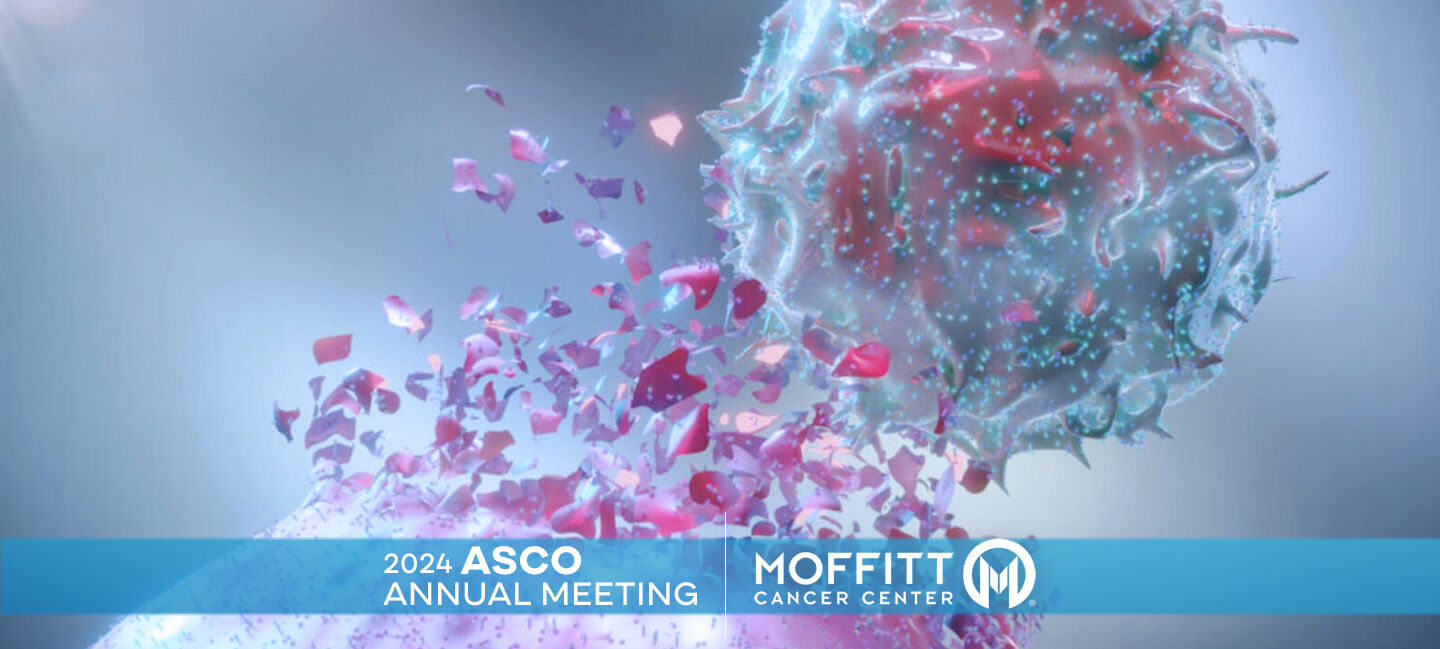Personalized Vaccine Shows Promise in Merkel Cell Carcinoma
Merkel cell carcinoma is a very rare and aggressive skin cancer that forms in Merkel cells, which are located deep in the top layer of the skin and are connected to nerves. According to the Skin Cancer Foundation, the disease is 40 times more rare than melanoma, with about 3,000 new cases diagnosed each year in the U.S.
Historically, the disease has been hard to treat. The approval of new immunotherapy treatments has helped, but researchers are now investigating if a personalized vaccine can offer a new chance at a cure.
The vaccine, called IFx-Hu2.0, contains an antigen from the streptococcus bacteria, which commonly causes strep throat. It is injected directly into a tumor, and researchers hope the cancer cells will react to the bacterial protein to signal the immune system to attack.

Andrew Brohl, MD
“The hope is that if the immune system starts recognizing parts of the cancer, then we can train the immune system to ignite an immune response throughout the body,” said Andrew Brohl, MD, lead author of the study and a medical oncologist in the Sarcoma Department at Moffitt Cancer Center.
The results of the phase 1 study were presented at the 2024 American Society of Clinical Oncology annual meeting. Twenty-one patients with advanced Merkel cell carcinoma or cutaneous squamous cell carcinoma completed the trial, with several patients experiencing tumor regression in the injected tumors.
Following the completion of the vaccine therapy, 11 Merkel cell carcinoma patients and six cutaneous squamous cell carcinoma patients were treated with additional checkpoint inhibitor therapy. Despite previous failure of the same treatment prior to the vaccine, 56% of Merkel cell carcinoma patients experienced a durable response to the treatment.
“This suggests that this treatment may, in fact, have this immune-priming effect that we are hoping to see,” Brohl said. “This is a nice benchmark or early signal that is leading to bigger things in this disease.”
The early success has led to the need to develop larger studies to investigate the vaccine as an adjunct treatment to standard of care therapy. Moffitt is working to get the approvals to lead future studies.
Reducing Relapse Risk
While Merkel cell carcinoma has a high response rate to immune checkpoint inhibitor therapy, there is concern that patients are more likely to relapse once treatment is stopped.
To determine if there is a higher risk for relapse after treatment, a Moffitt study performed a retrospective review of 45 Merkel cell carcinoma patients who had received at least one dose of checkpoint inhibitor therapy, achieved stable disease or better and discontinued treatment for a reason other than disease progression.
The study, which was also presented at the 2024 American Society of Clinical Oncology annual meeting, found that patients with advanced Merkel cell carcinoma have a substantial risk of disease progression following the discontinuation of treatment, despite favorable initial treatment response. Of the group, 47% relapsed within an average of 11.2 months. Patients who achieved a complete response were less likely to relapse.
There are two genetic subtypes of Merkel cell carcinoma: one caused by the Merkel cell polyomavirus and one caused by UV radiation. The study found that patients whose cancer was caused by the Merkel cell polyomavirus were more likely to experience the post treatment discontinuation relapse.
“This may ultimately impact how we treat these patients. We may have to treat the patients with the viral-related tumors for longer periods of time or use some sort of consolidation therapy at the end of therapy to make sure they don’t have this relapse phenomenon,” Brohl said.
Moving forward, Brohl says the study highlights the importance of identifying which patients are at the highest risk for relapse and designing new ways to test treatment strategies. That could include maintenance therapy, combination therapies or radiation.



